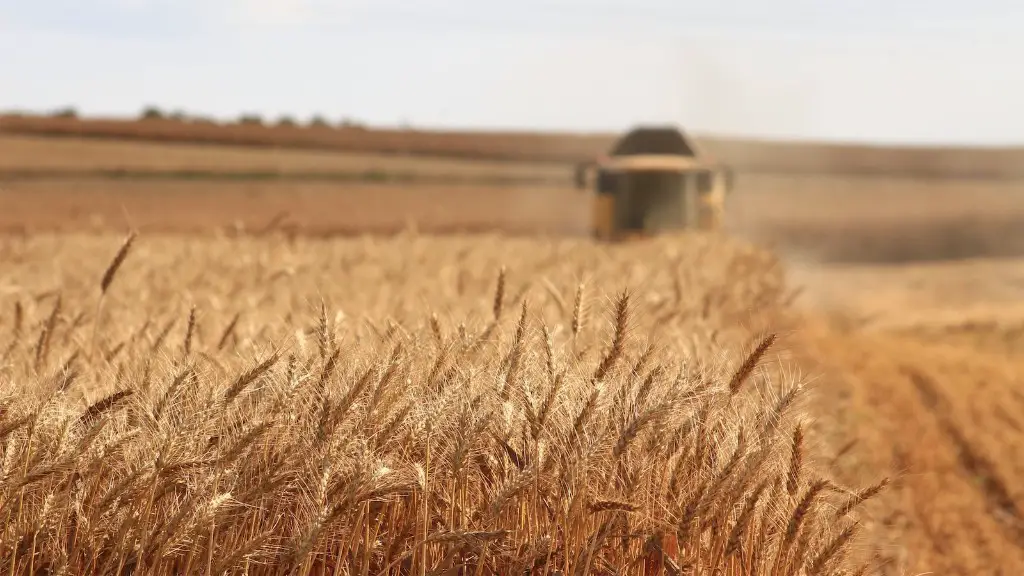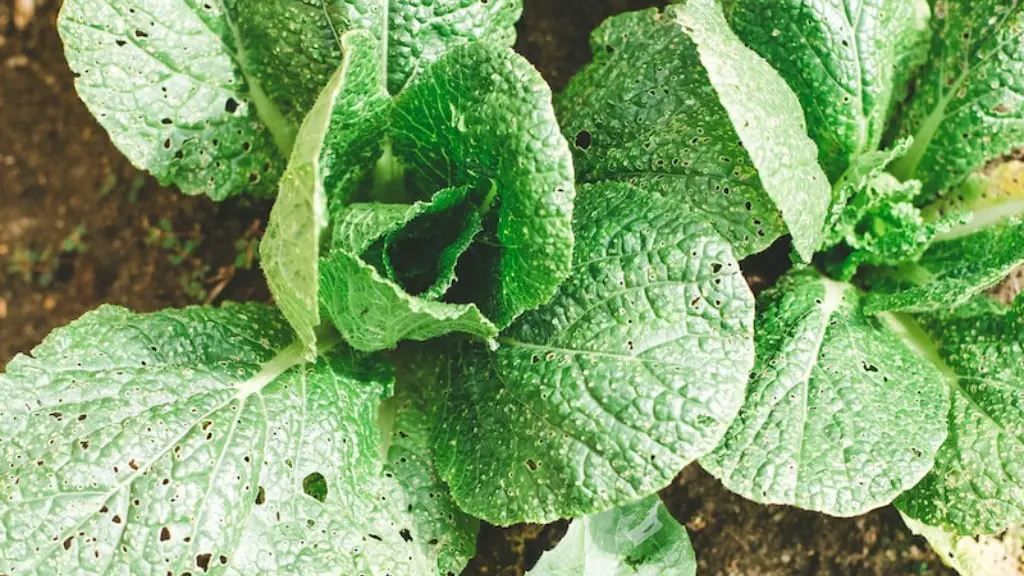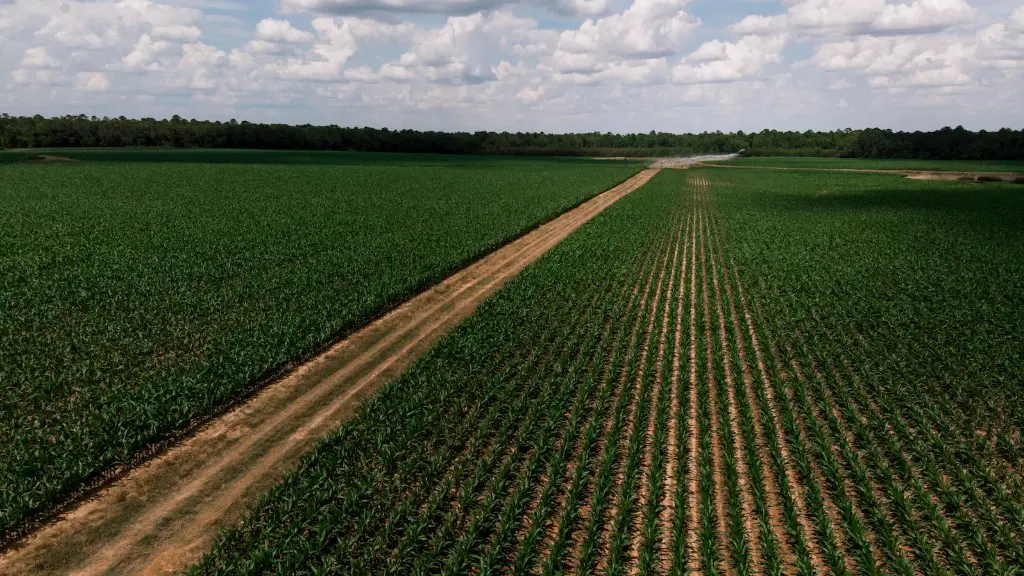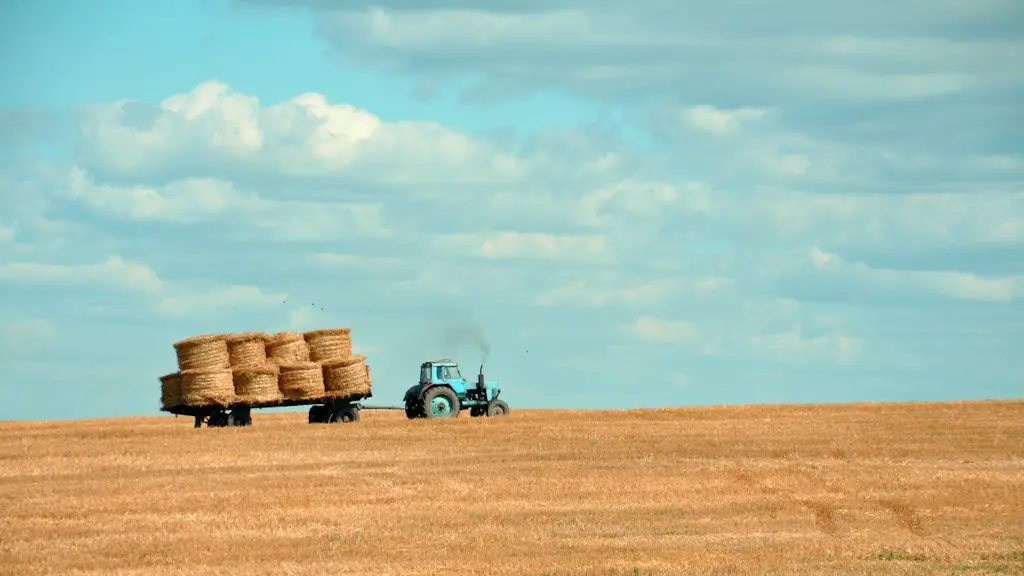West Africa generally refers to the countries of Benin, Burkina Faso, Cape Verde, The Gambia, Ghana, Guinea, Guinea-Bissau, Ivory Coast, Liberia, Mali, Mauritania, Niger, Nigeria, Senegal, Sierra Leone, and Togo. According to the World Bank, the primary problems facing agriculture in West Africa are: inadequate infrastructure, lack of access to financing, climate change, weak institutions, and land tenure issues. These problems result in low productivity and incomes for smallholder farmers, who make up the majority of the agricultural sector in West Africa.
There are a number of problems facing agriculture in West Africa, including:
-Soil erosion and degradation
-Lack of reliable water supplies
-Limited access to markets, inputs and finance
-Low productivity due to poor farming practices
-High dependency on rain-fed agriculture
– vulnerability to climate change and weather extremes.
What are the problems of agriculture in Africa?
The lack of implementation of policies, bad governance, and accountability, as well as debilitated institutions, have impeded the efforts of private and public investors in the agricultural sector. This has been a major contributor to the growth stagnation of agriculture, which is the main source of livelihood for many Africans.
Small farming, or subsistence farming, is a tough life, especially in regions with adverse habitats. Drought, shortages of ground water, lack of irrigation water, lack of fertilizer, poor soils, insect and weed pests, predation of crops by animals, and lack of open markets for farmers are all factors that make it difficult to make a living as a small farmer.
Why does Africa have poor agriculture
The agricultural sector in Africa has a long history of underinvestment and the wrong policies. Yet despite its enormous social and economic potential, the sector has become a poverty trap. A big cause of that is African governments massively underinvesting in agriculture.
West African agriculture is very diverse, ranging from nomadic pastoralism in the far north to root-crop and tree-crop systems in the south. This diversity is due to the wide range of climatic conditions found in West Africa, from the hot, dry Sahara in the north to the humid, tropical forests in the south. As a result, West African farmers have had to develop a variety of different agricultural systems to suit their local conditions.
What are the main problems in agriculture?
The loss of agricultural land and the decrease in the varieties of crops and livestock produced are two of the most major problems in agriculture. Agricultural land is being lost to development and other uses at an alarming rate, and the loss of biodiversity is a major concern. The decrease in the varieties of crops and livestock produced is also a major problem, as it results in a loss of genetic diversity and a decrease in the overall productivity of the agricultural sector.
Unemployment, waterlogging in wetland areas, salinity in arid and semi-arid areas, acidity in high rainfall areas, pests (like weeds, diseases, and insects), and erratic rainfall distribution are the common problems in agriculture sector of the country. The sector highly depends on rain-fed.
What are the biggest problems facing West Africa today?
These regions are all at risk of terrorist and violent extremist activity. This activity threatens the stability of these regions and the safety of the people who live there. It is important for the international community to work together to combat this threat.
The agricultural sector in India has been facing several challenges in recent years. Soil exhaustion, the vagaries of nature, overproduction of staple crops, decline in self-sufficiency, and lack of adequate legislative protection and aid are some of the main factors involved. As a result, farmers have been struggling to make ends meet and many have been forced to take up menial jobs or migrate to urban areas in search of work. The government has also been slow to respond to the crisis, with only limited initiatives being taken to address the issue.
What are the solutions to the problem of agriculture in West Africa
Fertilizers and manure play an important role in crop production. They help to increase the yield of crops, improve the quality of the soil and improve the fertility of the land. Crop rotation is another important agricultural practice that helps to increase crop production. It helps to improve the fertility of the soil and reduces the risk of crop failure. The land use decree of 1978 should be fully implemented to minimize the problems of land tenure. Farmers should form co-operative societies for easy allocation of farm lands.
Farmers using outdated tools is one of the major reasons for low productivity in agriculture. This is especially true at the rural level, where farming implements are often not as advanced as those used by urban farmers. This means that more labour is needed to increase production, which in turn lowers productivity.
How can we improve agriculture in West Africa?
There are many ways in which Africa can raise farm productivity and boost growth. Some of these ways include developing high-yield crops, boosting irrigation, increasing the use of fertilizers, improving market access, regulations, and governance, making better use of information technology, and adopting genetically modified (GM) crops. By taking these steps, Africa can greatly improve its agricultural output and contribute to overall economic growth.
The strong demand growth, sustained economic growth, higher global agricultural prices, and improved policy environment has generated the most conducive conditions for Agricultural growth in over 30 years. The current conditions are ideal for farmers to maximize their production and for agribusinesses to expand their operations. These trends are expected to continue in the near future, making the Agricultural sector one of the most promising industries for investment.
What factors affect crop production in West Africa
In West Africa, the main staple crops such as maize, cassava, millet, and sorghum are mostly dependent on rainfall. The region is influenced by large-scale climate teleconnections and some of the largest deficits in crop production have been due to droughts induced by declines in rainfall.
The current environment is causing production difficulties for farmers who use irrigation systems. There are disruptions across a range of food value chains, which are costing food companies and farmers extra money. Some of these costs could be passed on to consumers over time.
What are the problems facing agriculture in Nigeria?
The prices of key inputs such as seeds, herbicides, pesticides, fertilisers and agro machinery will be the determinants of food prices in 2022. Also, access to an adequate, secured and timely supply of quality seeds is a major hurdle in the nation’s quest to return to its heydays with agriculture.
The agricultural sector in Ghana faces a number of serious challenges, chief among them being low productivity, droughts, and climate conditions. These factors have led to a lack of infrastructure and investment in the sector, which in turn has stifled growth and development. The government has taken some steps to address these issues, but more needs to be done in order to truly transform the agricultural sector in Ghana.
What are the problems of food production in Africa
Agricultural production in sub-Saharan Africa has remained lower than the rest of the world for many years. There are a number of factors that are attributed to this, such as the climate, soil quality, slavery and disease. All of these factors have had a negative impact on agricultural production in Africa, and have prevented it from reaching the levels seen in other parts of the world.
There are many factors that lead to substandard harvests for African farmers. Many farmers lack access to basic things that other farmers take for granted, like improved crop varieties, fertilizers, and irrigation. Although some progress has been made, addressing these weaknesses is not enough on its own. We need to address the underlying causes of these problems in order to make real progress.
Warp Up
The problems of agriculture in West Africa are many and varied. They include:
– The high cost of inputs and lack of access to financing
– Poor infrastructure and limited access to markets
– Inadequate access to information and technology
– High levels of post-harvest losses
– Pests and diseases
– Climate change
The problems of agriculture in West Africa are many and varied. They include the problems of drought, soil erosion, and the depletion of groundwater supplies. They also include the problems of pests and diseases, which can destroy crops and livestock. In addition, the problems of agricultural production in West Africa also include the high cost of inputs, such as fertilizer and seed.





